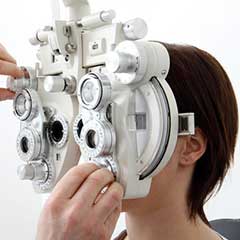Constipation is the leading cause of losing weight around the world. If you’ve tried cutting out foods like meat, butter, cheese, and other processed carbohydrates, then it’s likely you’re familiar with the phrase “diet constipation”. Most people aren’t used to getting all their fiber from processed, high in fat high fiber cereal until they go keto. Then they switch to get and forget about there still being many excellent natural sources which are incredibly low in carbohydrates yet have loads of constipation-fighting fiber in them. This article will hopefully help you to get your diet back on track so that you can once again be happy with your new, improved digestive system. Constipation is a common complaint among ketosis dieters.
Many dieters complain about increased hunger, dehydration, and laxative cravings. These symptoms are caused by increased insulin levels caused by the body’s inability to use its normal bowel functioning. The increased insulin intake results in dehydration, which further hinders your normal bowel functioning. Laxatives are used because of the dehydration and also because of the desire to avoid having constipation on keto diets.
The key to alleviating constipation on a ketogenic diet is dehydration. Water is extremely important as it plays an essential role in the body’s normal bodily functions. People who are dehydrated suffer from problems like irritable bowels, urinary tract infections, kidney stones, muscle cramps, etc. They even become comatose if the body loses too much water through loss of consciousness or unconsciousness. As an effect of dehydration, the body loses its ability to absorb electrolytes such as sodium and potassium, which are vital for cell function. Lack of these electrolytes causes weakness, dizziness, nausea, and cramps.
The remedy for constipation on a ketogenic diet is a high-fiber diet. High-fiber foods include vegetables and whole grains. For an even greater constipation relief, add one tablespoon of high-fiber porridge to a glass of water or juice. Alternatively, eat fiber-rich vegetables and nuts. The fibers added to the porridge make it easier to digest, thereby providing a higher fiber content that will relieve the problem of constipation.
Another way to get instant relief from constipation on a keto-friendly diet is to add more fiber to your daily meals. Most fruits and vegetables have a significant amount of fiber, even dark green leafy vegetables like kale. You can take the fruit and vegetable to your dining table and puree them with a few tablespoons of olive oil, a pinch of salt, and pepper. A healthy, high-fiber diet is the perfect way to avoid constipation and diarrhea.

Diarrhea is also caused by dehydration and can be easily avoided on a low-carbohydrate diet. Water is key to good digestion, and it is also key to losing weight. A high-fiber diet can make you feel fuller longer and therefore lead to fewer snacks between meals to compensate for the lack of food. It is best to stay away from soft drinks, caffeine, and alcohol while on a keto and constipation diet, as the effects can also lead to constipation and diarrhea. It is best to eat a wide range of different foods to keep the digestive process moving. In addition, make sure you are drinking enough water to keep yourself hydrated and avoid dehydration.
Some experts advise that women who are pregnant should not go on a ketogenic diet. There may be a slight decrease in the possibility of constipation or diarrhea while on this plan. As always, it is best to check with your doctor before taking any dietary plan, especially if you are pregnant or planning a pregnancy. If you are an athlete, however, this plan might be right for you. It will allow you to focus on your training, while still eating the right amount of calories and fats.
When you are constipated, your body uses fat cells to compensate for its inability to move enough feces. This causes you to have more water and weight gain than if you didn’t have constipation. If you want to free yourself from constipation, you will need to stop eating foods that are high in carbs. By eating the appropriate foods, which are complex carbs, you will help your body digest the foods that you eat. Once you get back into shape and your intestines are once again healthy, you will no longer have to worry about constipation on your low-carb diet.


